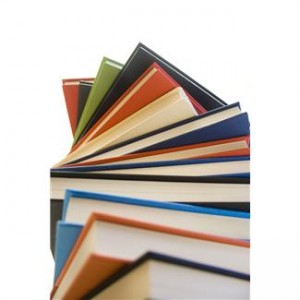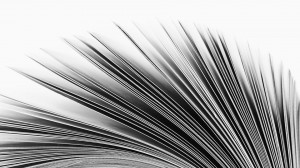 *Feral Feminisms CFP ISSUE 3 – Feminine Feelers Deadline – 15 March 2014*
*Feral Feminisms CFP ISSUE 3 – Feminine Feelers Deadline – 15 March 2014*
*Feral Feminisms,* a new independent, inter-media, peer reviewed, open access online journal, invites submissions for a special issue entitled “Feminine Feelers,” guest edited by Zorianna Zurba. Submitted contributions
may include full-length academic essays (about 5000 – 7000 words), shorter creative pieces, cultural commentaries, or personal narratives (about 500 – 2500 words), poetry, photo-essays, short films/video (uploaded to Vimeo), visual and sound art (jpeg Max 1MB), or a combination of these.
*Please direct inquiries and submissions to Guest Editor, Zorianna Zurba.*
Prior to the recent Affective Turn in critical and cultural theory,
feminist theory and philosophy had already been critiquing the role of
rationality and the exclusion of emotion in Western thought. Elspeth Probyn
(1993) argued for the inclusion of experiential accounts in understanding
the relationship between feminist epistemology and ontology; and, Alison
Jaggar (1989) worked to restore inquiry as the wisdom of love to Western
epistemology by validating emotional acumen as a highly developed skill.
For Jaggar, the one who feels different is an emotional outlaw. Emotional
outlaws are a kind of precursor, grandmother or godmother, to Ahmed’s
(2010) affect aliens: the feminist killjoy, who is angered by the sexist
joke, or the melancholic migrant, who longs for something lost, or the
unhappy queer, whose happiness is already impossible. Claire Hemmings
(2012) has argued that being outside of emotional norms can offer a kind
of unification, where affective dissonance is a starting point for
feminist politics and can encourage affective solidarity.
But what of a return to previous conceptualizations of feeling in
understanding the feminine and feminism? Luce Irigaray (1991), for example,
writes of the erasure of the figure of the female lover and the
simultaneous loss of the expression of feminine carnality, female divinity,
and the representation of the female body. In light of these and other
recent works (Cvetkovich, 2012; Grosz, 2011), how might we consider moving
forward by taking into consideration feminine feelings?
Feminine Feelers are flustered, fraught, and feral. Feminine Feelers recall
feminine modalities of feeling that have gone otherwise. Feminine Feelers
ponder the position of emotional misfits such as female mystics, poets,
artist, grandmothers, godmothers, cyborgs, golems, lovers, and Other(ed)
figures. Feminine Feelers also highlight moments in feminist thought which
illuminate the role of feelings and accounts of the body. What challenges
does the turn to affect pose to feminist theory? How might we cultivate the
sensory in order to tune into what is going on? Is the female an outsider,
or is the feminist the outsider? How does outsider status offer a critical
distance from cultural and emotional hegemonies? Must this distance be
maintained in order to preserve difference?
This special issue of *Feral Feminisms* seeks to bring together scholars,
activists, and artists to think through and feel through categories.
Submitted contributions may include papers, visual art, film, poetry and
literary pieces. Submissions are encouraged to address, but are not limited to, the
following topics:
● Cults of the feminine
● Indigenous femininities
● Figures and examples: emotional outlaws, affect aliens, fantastic feelers
● Vocabularies of feeling
● Feminine and feminist genealogies
● Theoretical and methodological disjunctures within feminist and queer
phenomenology, affect studies,
cultural emotion studies, cultural anthropology
● Art and literature movements and their relationship to affects: the new
sincerity, Remodernism, etc.
● Edges, excesses, and limits of Feminine Feelers and feminine feelers
● Animality, feelings, and non-human animals
For submission guidelines, please see:
http://feralfeminisms.com/submission-guidelines/
—
visit our website: www.feralfeminisms.com
like us on facebook: www.facebook.com/feralfeminisms



